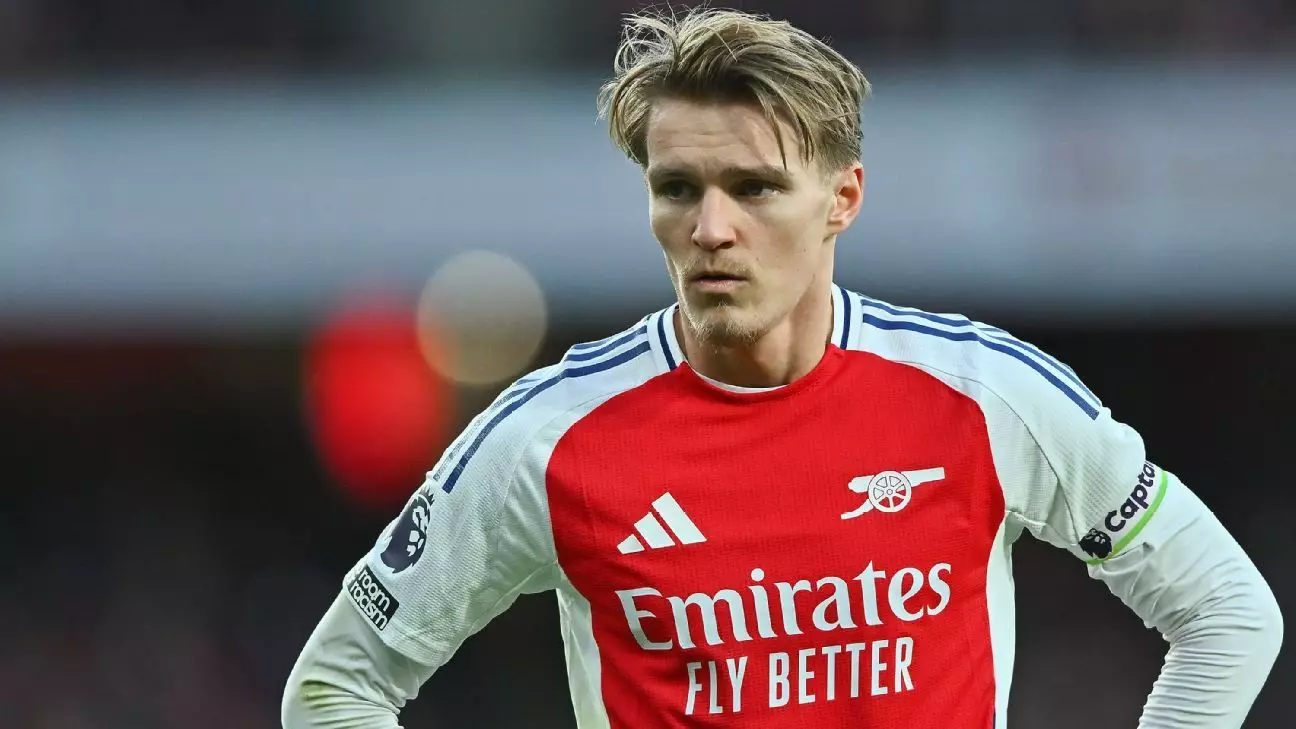In a tense fixture that ended goalless at the Emirates Stadium, Arsenal faced Everton with high expectations but was met with a resilient opposition. Despite dominating possession and having several opportunities, the Gunners were unable to break through Everton’s steadfast defense led by an outstanding performance from goalkeeper Jordan Pickford. Such a frustrating outcome leads to an examination of the decisions made by Arsenal’s manager, Mikel Arteta, particularly his controversial substitution choices during the match.
One of the most talked-about moments was Arteta’s decision to replace captain Martin Ødegaard with teenage sensation Ethan Nwaneri in the 62nd minute. With the match evenly poised and Arsenal desperately searching for a breakthrough, this strategic shift raises questions. Was it a bold tactical move or a questionable risk that could have backfired? Arteta defended his choice by asserting it was a predetermined tactical plan aimed at altering the rhythm on the pitch, suggesting that fresh legs could spur creativity in attacking scenarios. However, this decision also invites speculation on whether removing a captain and playmaker was the best course of action when chasing a vital goal.
Arteta’s substitution not only altered the team dynamics on the field but also sent a message to the squad about the expectations placed on junior players like Nwaneri. While the manager is justified in seeking innovation through substitutions, the implications for team morale, particularly regarding a leader like Ødegaard, cannot be ignored. Questions arise about how such decisions are perceived by other players in the squad—whether this reinforces a culture of accountability or creates an atmosphere of uncertainty.
Arteta also noted the fitness concerns surrounding Declan Rice, which necessitated his substitution alongside Ødegaard. This highlights the challenges of squad management, particularly the balance between player health and tactical execution. The manager’s admission that managing player fitness is increasingly challenging speaks to the broader issue of squad depth in contemporary football, where injuries can impact strategic planning in real time.
Despite the draw, there are valuable lessons to be gleaned from this match. Arteta acknowledged the need for enhanced individual performance and creativity, suggesting that some players fell short in delivering the necessary flair to clinch victory. The resilience of Everton should also be credited, showcasing their ability to absorb pressure while executing their tactical plan effectively.
While Arteta’s tactical choices faced scrutiny, they also reflect the complexities of managing a modern football team, balancing the immediate need for results with long-term player development and fitness considerations. As Arsenal prepares for future matches, the outcomes of these decisions will undoubtedly be under the microscope as fans and analysts seek to uncover the optimal approach for the squad’s growth and success.

